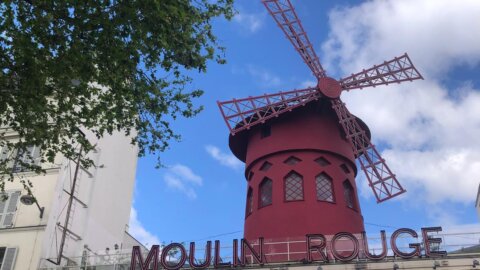Judge's word
“Even if Google's primary motivation is profit, the fact is that Google Books serves many important educational purposes… It advances the arts and sciences, while respecting the rights of authors and other creators without adversely impacting the rights of copyright holders. copyright. It has become an irreplaceable research tool for students, teachers, librarians who can more efficiently identify and find the books they need. It gave scholars the ability, for the first time, to perform full-text searches of tens of millions of books. Its function is to preserve out-of-print books and forgotten texts in libraries, giving them a new life. Facilitates access to books by the disabled and populations living in remote or difficult to reach places. Build new audiences and generate additional revenue streams for authors and publishers. In fact, all of society benefits.”
These are the words contained in the judgment of the November 14, 2013 of 30 pages drafted by the judge Danny Chin of the Second Circuit Court of Appeals for the Southern District of New York which proved Google right in the cause Guild of American Writers (The Authors Guild, Inc) vs. Google for the Google Books project. The judge also admitted that his own office uses Google Books for research, implying that the service is also a blessing for his work. There Guild of Authors has stated that it will appeal in appeal against the sentence. His lawyers said the availability of excerpts found through searches by Google users could damage la possibility di purchase of the book, as satisfied by what they found. The judge has instead denied that l 'assembly of small passages found in the research, makes the purchase of the book superfluous.
Google, for his part, he pulled a sigh of relief: the lawsuit had been dragging on since 2005 and had resulted in a lot of tensions between the search engine and the whole world ofbook publishing, authors and publishers spear in remains, who had since then begun to bark at Google regardless.
Naturally Google had put in place its usual disruptive method, one-sided and irreverent typical of the gambler who could be labeled as “fait accompli method”; a very common method in totalitarian countries.
Assuming, rightly, that seeking the consent of the rights holders it would have been like crossing the Styx, Google had started making send directly from libraries, which they had joined to the project, pallets of books to scan in a hangar in San Francisco Bay. The pages of the scanned books ended up on Google's servers and could be reached by the public through a search by word or expression from the home page. Book pages that contained occurrences of the search word were listed, just like web pages, in the results list. The pages of printed books were indexed together with Web pages, thus collecting in one huge database universal written knowledge. A drawing by Google co-founder and current CEO, Larry Page, who couldn't get over the fact that there was more knowledge in books than on the web and that this knowledge escaped Google.
In 2011 the publishers yes they were agree out of court with Google and also the authors guild had finally reached an agreement for a compensation of 125 million dollars from Google, but this agreement had been rejected by Judge Chin himself after protests arose that the agreement violated the rights of publishers and authors outside the United States, and the Justice Department also objected to the possible anti-competitive nature of the agreement.
The Google Books program
As of April 2013 Google had scanned with optical character recognition software (OCR) thirty million books, most of which are out of print or out of print. Second Leonid Taycher, who works on the Google Books project, in IT world; have been published 130 million books that Google aims to digitize in ten years. The one-sidedness of the project had softened a lot over the years and Google had taken important steps towards the counterparts; for example libraries ed publishers Participants in the Google Books program can receive, at no cost and not in an exclusive regime, a digital copy of the book acquired by Google machinery. Publishers, impoverished by the crisis, can thus rebuild their digital catalog with almost no investment. For example the Italian publisher Gremese was able to digitize an immense heritage of its catalog and of Italian culture: that Dictionary of Italian cinema in many volumes which otherwise would have remained ink on paper due to the cost of scanning and checking the text made up of tens of millions of characters.
Even the French publishers that they had dug a deep ditch around their fort, convincing the French government to launch a competing project to Google Books, they threw down the drawbridge to let Google scanners in. The Association of French Publishers today has a satisfactory agreement with the search engine in the sense that publishers retain control (again the control mantra) over which titles to include or exclude from the program, a decision Google is committed to respecting.
For those who are particularly curious, I recommend reading the entry "Google Books" in English on Wikipedia.
Continue reading on ebookextra





